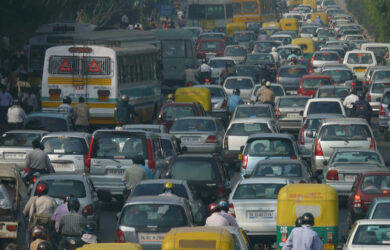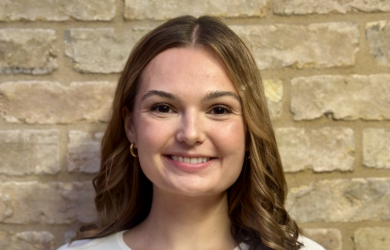The first Gates Cambridge Alumni event to be livestreamed on Youtube debated political ferment in the Middle East and the quest for sustainable cities.
The first Gates Cambridge Alumni event to be livestreamed on Youtube debated two of the most pressing challenges of today – political ferment in the Middle East and the quest for sustainable cities.
The event was part of the Gates Cambridge Alumni Weekend, which took place over the weekend and was organised by the Gates Cambridge Alumni Association.
Kicking off the debate on the Middle East uprisings, Maha Abdelrahman, a lecturer at the Centre of Development Studies at the University of Cambridge, said the events of Tahrir Square had been building for many years beforehand. Egyptians had been organising around different issues since 2000 on the basis that the state had failed to deliver on the social pact. This culminated in the 2011 protests, but, despite the activists’ bravery, they had been marginal to the political process. She said that this was partly due to the nature of today’s protest movements, from anti-globalisation and the indignados to the Tahrir Square protests – they worked outside formal political organisations, challenged the status quo, but did not intend to capture state power and did not have a long-term vision of what might replace the status quo.
Another factor was that it was fairly easy to fragment the movement along religious and identity lines even though it was not about secularism versus Islamism. It was also fragmented along political and economic lines. There was a failure to bridge the gap between those who were more interested in political issues, such as redrafting the constitution, and those more worried about economic issues such as wages.
Since the uprising the same structures are in place and nothing appears to have changed, she said, so she anticipated more developments.
Ian Black, Middle East editor of The Guardian, said the western media had barely covered events in Tunisia which triggered the uprising, but it sat up when the protests reached Egypt. It had not reported on previous protests in Egypt so had to play a fast catch-up game. He said the picture in the Middle East was “unremittingly grim”, but things had happened so fast in the past three years that it was difficult to make any judgements. People’s expectations had changed and the genie appeared to be out of the bottle. The status quo appeared to be no longer sustainable. What will replace it, however, is unclear. “That is still to play for,” he said.
Hazem Kandil, a lecturer in political sociology at the University of Cambridge, said power in Egypt was held between a triumvirate of the military, security services and the ruling political institutions. Since 2011 the military has been the dominant power. After the protests and the overthrow of Mubarak, the candidates for ruling party had to be acceptable to the military and security services. The Muslim Brotherhood provided a sense of change and was the most organised opposition group. In power the Brotherhood did not do anything to change the power structures or make them more accountable. When the people rose up against Mursi and he refused to acknowledge his unpopularity, the military had three options – to repress their people on the orders of the Brotherhood and be accused of supporting the Islamist regime, to do nothing and watch while a civil war gripped the nation or to intervene and support an alliance of the old regime and civil activists. “Egyptians,” he said, “consciously decided that if they had to have a police state it was better the devil they knew.”
He added that the biggest loser in Egypt this summer was the Islamists. Egyptians turned against Islamists, he said, not because of propaganda from the West, but because they could see directly and through Islamist media how they handled situations when they were in power.
During questions, Ian Black said the West had been too uncritical of Mursi’s government. He added that he thought claims about the role of social media in the struggles in the Middle East were exaggerated. Twitter and Youtube provided new tools for organisation, but essentially did not change anything.
The debate was moderated by Erin Snider [2005], a Gates Cambridge alumna who is Assistant Professor of International Affairs in the Bush School of Government at Texas A & M University. Her current research focuses on the political economy of aid and transition in the Middle East.
Sustainable cities
Fiona Harvey, an environment journalist at the Guardian, introduced the debate on sustainable cities, citing a UN report on the huge rise in the numbers of people living in cities. She said existing cities were not sustainable, but there was also concern about the growth of megacities which were also not fit for 21st century challenges.
Simon Giles, Accenture’s global lead for Intelligent Cities Strategy who advises cities, government and developers on economic development, spoke about the need to develop digital economies and what infrastructure that would involve, for instance, to make a city attractive to a global talent pool. He also argued in favour of cities being proactive in opening up data to the public, although there was discussion over whether things like using GPS to identify people’s location constituted a threat to privacy.
Linda Gichuyia [2011], a current Gates Cambridge Scholar and architect, described her PhD research on the impact of climate change on sustainable building in developing countries. She said it was a vicious cycle – climate change meant more energy use to cool down buildings. New buildings needed to be designed to be adjustable to the potential impact of climate change.
Developing countries faced particular problems in thinking long term about the impact of climate change on cities due to ongoing instability and uncertainty, she said. She felt the structures around building had to be more flexible and that building codes should adapt to fast-changing situations.
Diane Haigh, an architect and a Director of Allies and Morrison Architects, spoke about the King’s Cross development, saying it was about making the space very flexible for long-term use, thinking about things like how to plan streets to let in the maximum amount of natural light, creating spaces which had multiple uses and could bring people together and about public consultation – some 3,000 had taken place during the development process.
She said consultation should begin in advance of detailed plans. Communities should be empowered by having access to information and engaging them as mature participants. Simon Giles added that the delivery mechanism for consultations in developing countries was overwhelmingly via mobile phone.
*The debates can be viewed on the Gates Cambridge Youtube channel at www.youtube.com/GatesCambridge.












